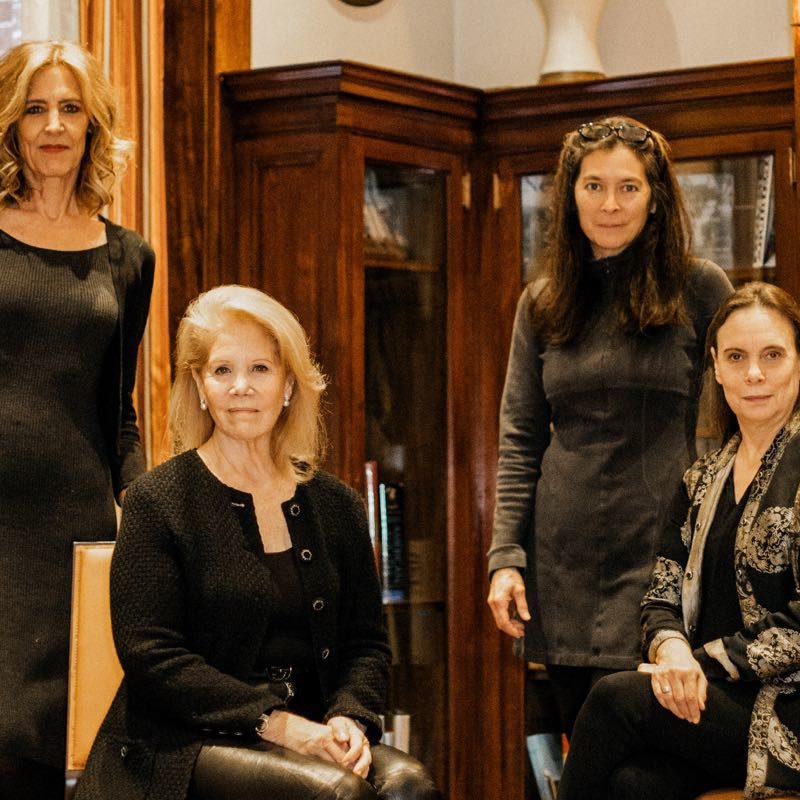Christine Lahti, Emily Mann, Diane Paulus, and Daryl Roth on Gloria: A Life

November 27th, 2018
For the new theatre piece Gloria: A Life, about Gloria Steinem, the Daryl Roth Theatre has been transformed into large oval, with rows ascending from the stage and pillows lining audience seats, giving everyone a downward view of the stage and out to other audience members. Early in the performance on the night I was there, I noticed two young women sitting across from me in the front row who were watching the performance with such intensity and without emotional guardedness. It was as if this story about Gloria Steinem looking back on her remarkable life and all of the women who shaped it—from her complicated relationship with her mother to women who influenced her views on feminism like Dorothy Pitman Hughes, Bella Abzug, and Wilma Mankiller—was being performed not for them alone, but for them together. During the second act—a talking circle including the audience, led by a special guest that changes nightly, along with Christine Lahti, who plays Gloria—one of these young women would raise her hand a little and then put it back down. Now, I have been to quite a few traditional theatre talkbacks and something I have noticed is that young women tend to get called on less. Sometimes it takes them longer to raise their hands, but even once they do, they get passed over and someone else gets called on. But on this night, the second time the young women halfway, kind of, sort of raised her hand, Christine Lahti turned to her and said, “You look like you have something to say.” And she did.
Gloria: A Life is written by Emily Mann, directed by Diane Paulus, and produced by Daryl Roth. Along with Christine Lahti as Gloria, there is an all-female cast—and creative, design, and management teams. I recently spoke with Christine, Emily, Diane, and Daryl about bringing the life of Gloria Steinem to the stage, where their own lives parallel the story, being women in the public eye, hiring women, and more.
When you started working on the piece, was there something that felt very clear about the story like, “I know who Gloria Steinem is,” or, “I know what the meat of this story is,” or something that changed a lot throughout working on it and that you were surprised by?
Emily: The play has been in a form of being created for four years now. Daryl and I started out originally, and it was going to be a one woman play for Gloria herself.
Daryl: At Lincoln Center Theater. That’s where we first conceived of it.
Emily: And when I was asked to write it, it took me less than a 10th of a second to say yes, because I would not have the life that I have without Gloria. She has been a beacon for me since I was a young woman. I was thrilled to be asked and honored to be asked, and leapt right in. And then, pretty soon after a workshop, Gloria realized, no, she did not want to play herself, and couldn’t play herself, and now what would it be? So when we got Diane to come on board, she said, “I think the most important thing about Gloria is she’s not doing it herself. It should not be a one woman play. Her life is all about community, and it’s all about the other women in her life who have inspired her. So, let’s think of it with her in the center but an ensemble.” And from then on we started working first with readings, and all kinds of things to start making it an ensemble piece. And then when Christine came on board, the three of us became what we call ”The Dream Team,” where we just worked non-stop, helping me and working on the script to excavate the best stories, and then activate it, so that it would be a performance piece for six or seven. And then the next part of it was keeping it up-to-date. But it was a process over the last four years.
Daryl: After Emily was commissioned to write it and when Diane and everyone decided that it was not going be a one-person show, whether with or without Gloria, Lincoln Center decided they didn’t want to do it. You have to remember that part. And so here we were, in the midst of geniuses creating this wonderful work of Gloria’s story that we were all totally on board with and totally excited about, and Lincoln Center, I think, had one thing in mind, which was a one-person show that would be a Sunday-Monday night thing, a special event with Gloria. So we had to re-group and figure out our next steps, which I think ultimately was the right thing to do from the beginning, actually. We just were led by Gloria wanting to do it. Truthfully, I think, as sort of an insider-outsider view, this is what this was meant to be. Because you can tell so much more of a story, and the actors bring these various characters to life in the way it’s been written and directed. There’s such energy on this stage and such emotion that I don’t think you would ever really get that in a one-person show. So it turned out to be quite terrific.
Emily: Of course, it couldn’t have happened without Daryl, who said, “Oh, there are other theatres.” I remember you saying that.
Daryl: I said, “If you don’t want us, is it fine that I take this with me? And we’ll pack our bags, and we’ll go.”
Diane: I remember when you said, “What about 15th Street? What about right across from Union Square with all its history?” [Its history of] activism, and it being a platform for protest and being downtown. And I should say, the whole thing really started from Gloria, and then it was literally Gloria, and there are so many ripples to Gloria’s life that affected all of us, and all the circles that have continued around her. When Daryl offered the idea of going down to her theatre, which has been on my bucket list of dream things, that is an incredible space. I’d seen so many totally theatrical, mind bending shows in that space. The idea that it could be transformed, that it was, in a way, a blank canvas that could be transformed [seemed perfect]. So then this idea, that comes from Gloria and that Emily had put into her first script, we excavated and said, “Let’s make it actually a critical part of the show,” as this circular arrangement of the audience, so when you walk in the theatre, the audience is sitting in a talking circle. Then this idea, that our Act Two becomes a conversation, a talking circle with the audience.
Daryl: Our logo came out of the same conversation, and it’s a circle. We were really trying to take off on that concept of talking circles, of sitting in a circle, communicating in a circle. So our logo ended up being a circle.
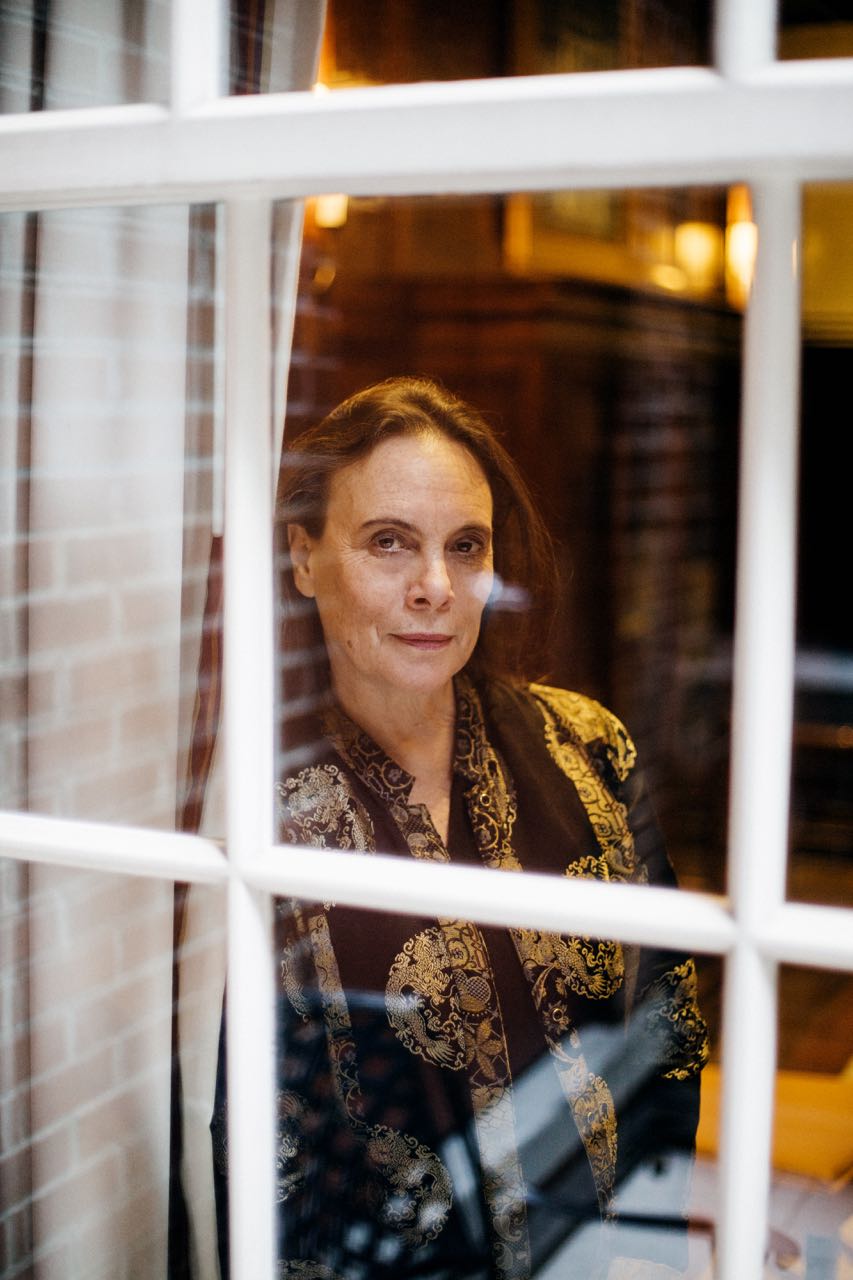
Christine, is there anything that surprised you about playing Gloria Steinem?
Christine: To me the soul of this play is her relationship with her mother. That was what resonated emotionally with me when I first read it. We had this wonderful collaboration where we would activate these scenes. I’ve known Gloria for a long time, she’s an old friend, so I knew stuff about her that I would bring to the table. This collaboration was the most egoless, where the best idea wins. It was really the greatest creative collaboration I’ve ever had, and it shows. It was so exciting. I’ve always loved rehearsal, more than anything, when it’s like that. That’s when it’s the most creative and there was no wrong idea. I could make a total fool of myself. Diane keeps saying, “There’s no such thing as a wrong idea.”
But what surprised me about Gloria, mostly, was how un-woke she was for so long, like me. I knew that as her friend, but I didn’t know to what extent. She was so un-woke that until she was 35, she thought stories about women were unimportant. That stories about women were frivolous. She grew up feeling like she didn’t matter. She saw her mother not matter. So she became someone who wanted to make sure that all women mattered. I just found that emotional journey fascinating and sort of the core of Gloria. I didn’t know that about her before I started this journey.
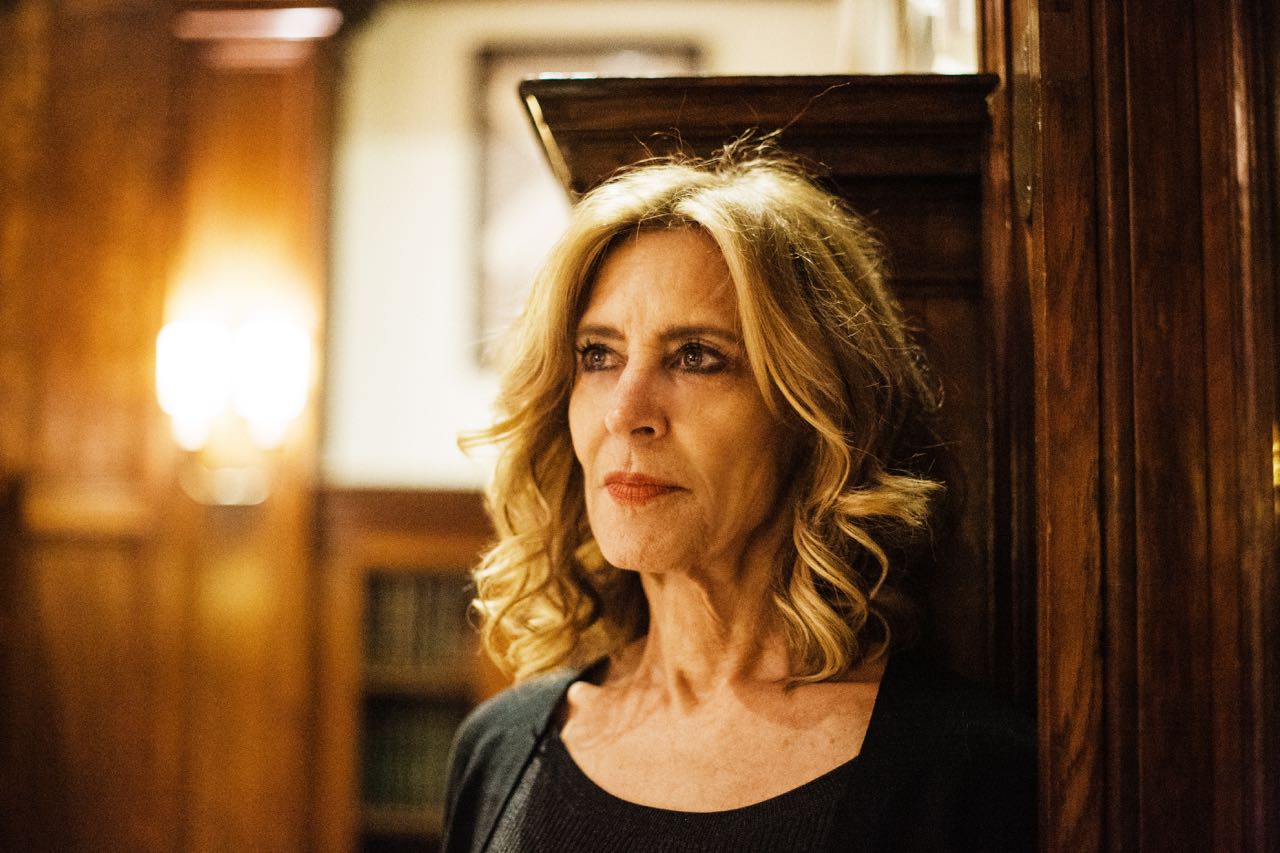
In reading some of the press for the show there were a number of people who admitted that they didn’t know that much about her other than: Gloria Steinem, feminist. I was surprised by that, maybe naively so. When putting together the show, did you think about what information the audience was coming in with? When you have somebody who is such a huge figure, and someone who some people know a lot about, some people know a little about, some people know completely different things about, some people have complete misinformation about, how did you decide to address that?
Emily: It was really helpful for me that I thought I knew a lot about Gloria, but then when I started to do the research, I realized I didn’t know anything. I didn’t know that she didn’t wake up as a feminist until 35, for example. I didn’t know about her mother, who had what was called in those days a nervous breakdown, and had been crushed by the patriarchy. I didn’t know that Gloria thought that she was broken, that she didn’t actually have a mental disease, and she wasn’t even aware of that until later in life when she started to write about it. So that, to me, was the key in early on. Whenever I went to a party or was around other people, I’d say, “Did you know about Gloria Steinem’s mother?” Usually if I were in a group of ten, maybe one or two might know, but most didn’t. So I thought, well, that’s a great revelation and a helpful thread through.
Then having just read Christine’s own memoir, which I finished last night, and seeing she had that in her life as well. I’m so glad I didn’t finish it until now because I would have had a hard time separating Christine and Gloria. There were so many things that were so like alike. Christine even said, “I’m living the unlived life of my mother,” which is, to me, a Gloria line, and there it is embedded in Christine’s work. And so that seems to be something that really resonates with people.
Daryl: And in addition to not knowing about her relationship with her mother, I think it’s interesting for us to see through the play what a wonderful caregiver she was as a child. From the time she was eleven, she actually took care of her mother. I think that informed who she became in terms of reaching out. She has an enormous circle of friends, and people that she literally cares for. I think that any child who is given that responsibility at that young age could come out of it deeply scarred. My observation is that she came out of it as a strong person who knew, when called on, what she could do. I think that’s all part of that mother story, in a way. We don’t really delve into that too much, but we see that she was a child and the roles were reversed. She was the mother and the mother was the child. It happens often as parents get older, but it doesn’t usually happen at that stage of life.
Christine: I think that Gloria will say that it not only made her a survivor and gave her a lot of strength, but it also caused huge self-esteem issues. She told me this one story, which we couldn’t get into the play, that one time as a little girl she had a cold. She was hoping that her mom would be able to take care of her cold. She laid in bed, and she kind of exaggerated the symptoms, like overly sneezing, and her mom couldn’t take care of her because she was either just drugged—she was addicted to this horrible tranquilizer—or she was incapable of attending to Gloria’s needs. So Gloria realized, at that moment, that she could never get sick again. I thought that was so moving and so telling. This is a child who grew up knowing that her needs were not going to be met. She just had to become her own person. I think it’s a mixed bag and complex. You not only feel strong and empowered, but you also grow up feeling completely invisible.
Diane: I think most people think of Gloria as a superhero. Part of what we talked a lot about, and part of the impact of the play and the experience of seeing the show, is we’re not all born superheroes, we’re not all born leaders and activists. It’s a journey, and everything about your life, the roughest stuff, the hardest, all the stories of your life, contribute to who you are and make you who you are. We kept talking early on that the whole point of the piece is to encourage everyone in the audience. Christine even has a line at the end of the play, “All of our stories are of value.” This very primal act of getting the audience to understand that your own experience is what matters. Gloria always says that people will say to her, “Oh my gosh, my daughter doesn’t know who you are, Gloria. What am I going to do?” And Gloria always says, “It doesn’t matter. Does she know who she is?” It’s this contradiction about doing a show about Gloria Steinem, which does delve into her life and particulars of her life that we’ve never known, but the actual culminating impulse is to put the lens on the audience, and say, “This life that you’re learning from, what you’re really taking away is not how great Gloria Steinem was, but what this can mean for me in my life.”
Emily: That was the core impulse for Gloria in saying yes, we could do it and yes, I want to do this. Because she said, “If I can show other people where I came from and that I can do this, then you can do this. This is all about inspiring others.”
Daryl: And I think that the play serves that very well. It doesn’t pander to anything. It puts it out there very honestly in the way it’s been written and staged and performed, where people understand, “I could make a difference. I’m a normal person, but I could make a difference.” And at the end of the show, we challenge people to go out and do something outrageous. It doesn’t have to be outrageous, it just has to be something brave. And I think people do.
Christine: There was a young African-American man who was in high school who stood up and said, “I never thought my voice mattered. I never thought I would want to do anything, to help make the world a better place, but after tonight, I feel like I could be a leader and I could do something.” Okay, mission accomplished.
Daryl: We love seeing younger people come and leave feeling like their life has meaning and their voices can be raised. It was very fortunate that we were being presented during the election time. We had stickers that used one of Gloria’s quotes about voting: “It’s not the most you can do, it’s the least you can do.” And I think that people really do feel empowered and they do feel strength coming out of the show. To say, “What in my world and my community can I do to actually affect change?”
Christine: A big part of it goes back, again, to how honestly we and Gloria all wanted to portray her life, warts and all. I had just written this book [ the memoir True Stories from an Unreliable Witness: A Feminist Coming of Age] and my whole objective was to be as honest as I could be about my life, as painful as that was. What was the point of writing about my life unless I was completely, warts and all, honest? And Gloria kept saying the same thing. I would call her up and say, “Tell me more about your mother.” “Tell me something that you’re ashamed of.” And she would say some things, and I’d say, “Are you sure you’re okay with this?” “Yes, if it’s not honest, then it’s not helpful.” She kept saying that. It was so beautiful.
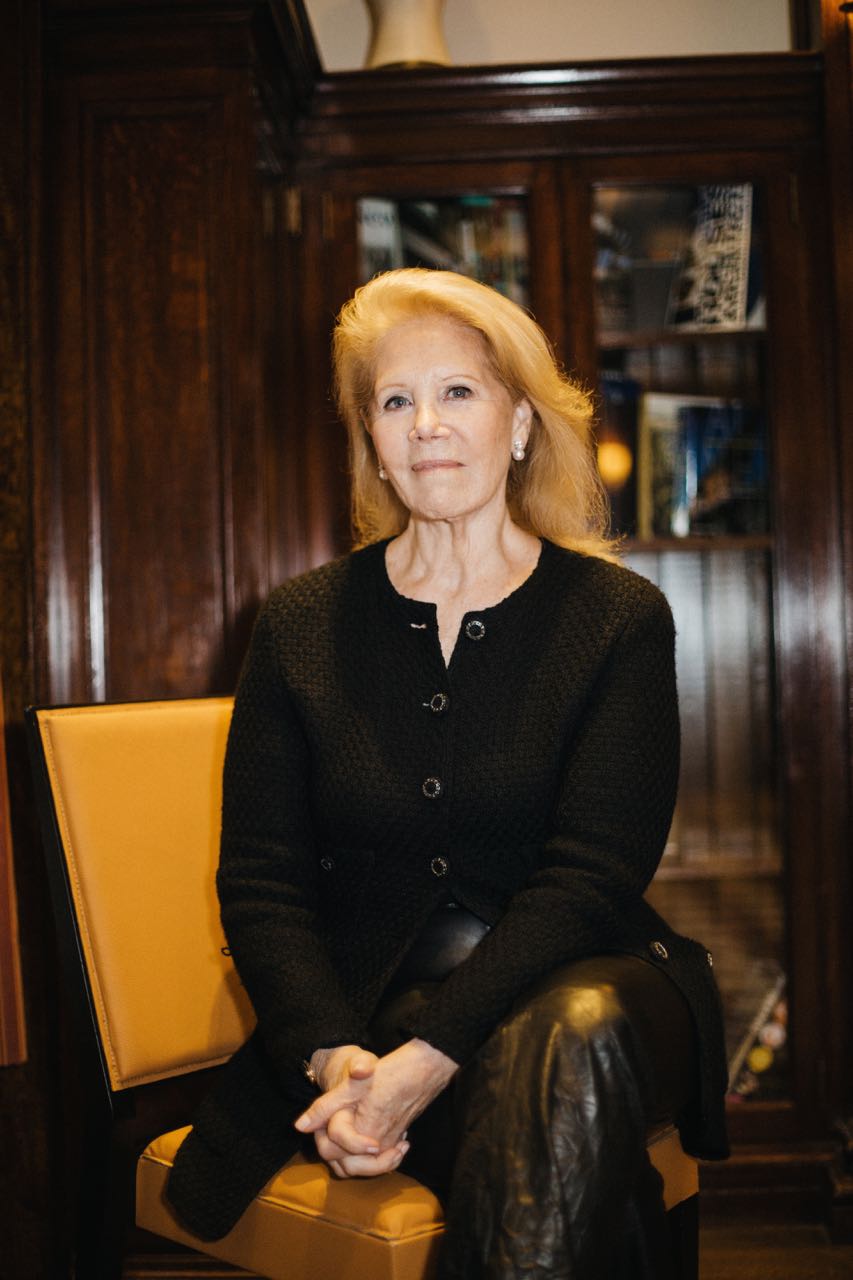
One of the things that I appreciated being included in the piece was showing how much criticism she received throughout her life, especially from the press. I think, for any woman in the public eye, that is something they go through. And now with Twitter and social media, there’s much that has gotten worse, in a way. Since you’ve all been in the public eye and all been in leadership positions, what have your own experiences been like in navigating the barrage of comments, many of them gendered, that you’ve had to deal with throughout your careers?
Christine: On Twitter, I get usually Trump supporters who criticize me physically, about “the plastic surgery that I’ve had,” which is a lie because I’ve never had any plastic surgery. Zero. That’s how they think they’re going to get me. But it’s just like, “That’s what you’re going to attack me for? Something that is completely a lie?” But what other weapons do they have? I’ve been called shrill, which is a word men usually use to talk about women who express any anger. That’s the most sexist word, I think, in our language. What else have I been called? Oh, bitch.
Daryl: There’s a line in the show about that. Gloria says if somebody calls you a bitch, say thank you.
Diane: It’s such a great moment, and we have transcribed that moment directly from an interview. This reporter, years ago, is asking her, “What do you think of these comments?” And she goes on and on and on, rambling around and then [what you see in the show is] verbatim how Gloria responded. Then Gloria today, via Christine, stands up and says, “It’s taken me until now to know what to say when someone calls you a bitch,” which I just love. And it’s just, “Thank you.”
Christine: That’s right, when she was younger she just spins around it and takes it seriously and allows it to penetrate her heart.
Diane: Some people in the audience have said, “Wow, it just kind of socks you in the gut to see how certain things haven’t changed,” when they see Gloria’s life replayed. But I think for others [it’s impactful] to see that there has always been a backlash. That’s the context of understanding where we are now. There’s always going to be a backlash.
Emily: And it goes in cycles. When you look in the ‘80s, and there’s Reagan and it’s [an earlier version of] make America great again, right? So it goes in cycles, and as she said, “The backlash gets more vicious the more successful you are.” For example, lynching did not happen during slavery, it was after emancipation. It’s the reaction to the success of those you’re trying to keep down. But when you think about the things we’ve all been through, I’ve certainly had it as an artistic director, director, and playwright where often, as Christine was talking about, the word shrill comes up, or aggressive, whereas with a man, you would simply be called strong. So there are certain unconscious biases that we come up against all the time. And certainly with critics, who are unaware of their blind spots and that they may not understand something, if they’re coming from a male perspective. I’ve gone through this for 40 years where I can guess the gender of the critic, given [how they write about] the work that they are critiquing, and that has been true to this moment.
Daryl: I’ll go on record on saying this: It was so astounding to me that The New York Times sent a man to critique our show, and that we didn’t get a female [critic], from the most powerful newspaper in the city.
Christine: Is there a female [theatre] critic at The New York Times?
Daryl: A few. Not first-string.
Christine: Who cares? Just send a woman.
Daryl: Yes. I thought that was really insulting, more than anything else. And I don’t mind this critic, usually I think he’s quite smart and astute. But it’s a different sensibility that a woman would come to in reviewing a show about Gloria Steinem. But to answer the question, I would say that my challenges for the last 30 years have not been gender related as much as, in the beginning, people just thought I was a dilettante because I didn’t come up through the ranks of theatre. I sort of just did it, and built a career based on shows that I thought were important to me, and hopefully others, and messaging things that I thought people needed to hear about, whether about women or gender issues or my Jewish tradition, all of those things that were important to me were things that I would choose to do. I had to close out the noise because I hadn’t worked in theatre since I was a kid, I started my career in my 40s, which is how it happened for me. So my issues weren’t “Oh my God, it’s a woman,” but “Oh my God, who does she think she is? What is she trying to do here?”
Diane: It was probably compounded by the fact that you were a woman.
Daryl: Probably, but that wasn’t the first word out of people’s mouths.
Christine: It was dilettante?
Daryl: It was more that. And that I came from a family where I didn’t have to feed my children [by working], so why was I taking up space or something?
Emily: But they wouldn’t have said that about a man in the same situation.
Daryl: Never. But nobody would come and say, “It’s a woman,” so all the other things around it [became the issues]. I think what we learn, and probably what all of us learn, is to shut out the noise and just go with your gut.
Emily: In the early days, often being the first woman to direct on any main stage, I would often get funny little comments like the headline [of an article about it] would be, “Mann, first woman to direct.” They used to think that was pretty hilarious. But I do remember, and this person will remain nameless and he’s since passed, when I was doing my first Broadway show, he said, “You know, I don’t really trust women with large budgets.” In those days, you could say those things. They may still think it, but they are not allowed to say it anymore. In the early days, going past those barriers and those closed doors, I’ve heard things that would make your hair fall out of your head.
Christine: Emily, you were told you could only direct children’s theatre.
Emily: Yes, when I was graduating from college. That women could not direct or write professionally in the American theatre. That’s what I was told in the early ‘70s. So it’s been an interesting journey.
Daryl: I want to say that our creative team is all women. People say to me as a producer, “What are you doing to help women?” Well, how about hiring them to do the jobs? That’s the first thing.
Diane: Also, the number of women that are on all aspects of this production. Of course, starting with Daryl and then the creative team, but trickling down. That’s what’s astounded me. Management, stage management, crew, backstage, front of house. I mean it’s unbelievable.
Daryl: And we have a few men in my organization that work on it diligently.
Diane: And we need the men. We need the allies, and that’s a message in the show too. Every time I track the reports of what’s happening in the show, it always comes up about men too. In a way, it’s a safe space for a man. Because they’re confused, and it’s a forum in which they feel safe to say what comes out of them.
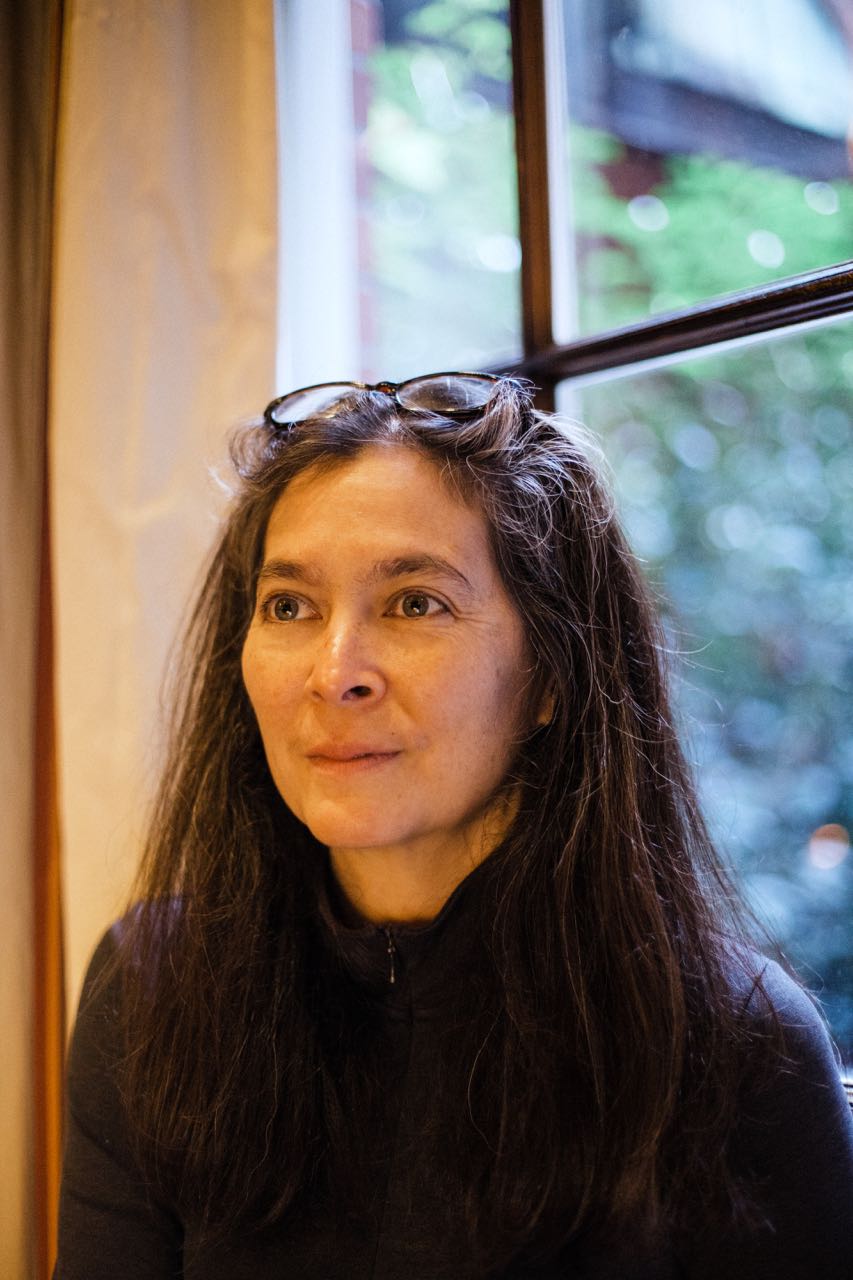
Going back to the all-female team for this show, and Diane you also had an all-female creative team for Waitress not too long ago, I wanted to ask about how you all think that should be spoken about in the press. For The Interval, we like making a big deal out of that because we think it’s important. But, at the same time, there is a way that it’s a little challenging to talk about. I feel like it’s sort of like the Ruth Bader Ginsberg thing where, when asked, “How many women are enough on the Supreme Court?” and she said, “All of them, because we’ve never questioned the fact that the greatest legal minds of the country could all be men. Why would we question that the greatest legal minds in the country could all be women?” We have all-male teams or almost all-male teams all the time, and we say that it’s normal. Personally, I think instead of saying it is normal, we should say it is common, but not normal. So I was wondering, for all of you, being at the center of this, if you wish there was a way that all of this was talked about differently in the press?
Daryl: I think there’s a major problem, which is at the root of this, and that is that many producers don’t know who their choices are. If they’re used to working with certain designers and they happen to be men, they have an unwritten language with them, they have a comfort with them, and it’s just easier to go back to those people. If producers would just take the time to meet some of these designers and get to know them, then they might invite them in on the next show. So I think the real issue here is getting to know the people who are available. It’s not necessarily hiring women just because they’re women. In the case of this show particularly though, I thought it would be an honor, considering our subject is Gloria Steinem, to surround this production with women.
I think other producers just need to know who they can go to, instead of going to the same people that they work with all the time. We have people that we did not work with before. And yes, we did go out to them because they were women. We wanted to give that opportunity to someone. From the producer’s point of view, it’s getting to know those people, and offering a hand to say, “Come into the circle.”
Diane: I think what Daryl’s saying is exactly right. That there are women at the top of their field, in all of these areas, but they may not be known. So how do you give that platform to people who haven’t gotten a shot or haven’t been noticed or haven’t worked in a certain arena?
Daryl: You have to hire them, so someone else can see their work. And if anyone calls for a recommendation, you have to give an honest recommendation. Say, “Meet this person. Look at their portfolio, give them a chance.”
Diane: So I think that’s really the issue. There are women at the top of their fields in all the areas. In all the areas. But then why do the numbers not reflect that? Because they’re not known. They’re not given that shot.
Christine: I think you hit it, though, that producers need to take the time to have general meetings with women to know them. My husband, who is the president of DGA, at least every week, he meets one woman or one minority person, just to know them, to see their work, they bring their reel and they talk. Just so he has a whole catalog of people that he can go to. More and more producers have to take that time to do that. Otherwise, they’re just going to go conveniently to their boys’ club, right?
Emily: Both Diane and I also run theatres. And I have to say, that what comes into us, in terms of the new plays, women and people of color are writing the most exciting plays right now, I think. They just are fantastic. That’s the work that comes to us that we’re most excited about.
Daryl: There’ll come a time when you don’t have to say, we’re presenting an all-women season. Because it shouldn’t be extraordinary, it should be the norm.


